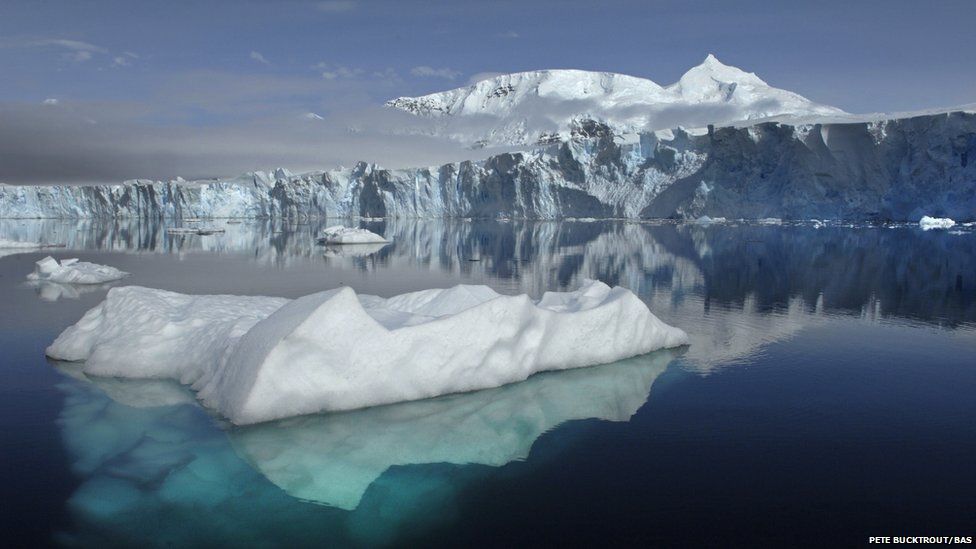'Weedy thing' thrives as Antarctic shores warm
- Published

Climate change is helping an inconspicuous sea moss animal spread rapidly in Antarctica, say scientists.
The warmer temperatures have helped Fenestrulina rugula to thrive at the expense of other species.
The sea off the peninsula is freezing less so more icebergs are battering the shores, smashing the creatures that live there.
According to a new report, the nimble moss has managed to thrive despite the pounding.
But researchers say it is not good news for marine creatures further up the food chain.
Splintering rocks
Despite the harsh environment, the waters near the shores of the Antarctic peninsula are home to a wide diversity of species.
But over the past two decades, the rocks and boulders near the shoreline have been subject to increased scouring by icebergs.
The icebergs have been doing more damage, say scientists from the British Antarctic Survey (BAS), because there is less winter ice to restrict their movement.
"If they are blown inshore they collide with the seabed," said Dr David Barnes the study's lead author.
"Those collisions are absolutely massive, they splinter rock, they completely reshape the sea bed."
Starting in 1997, the team have been monitoring the inshore area. More than a decade ago they set up small grids under the waters of Ryder Bay to record the effects of this type of disturbance.
By comparing a daily record of sea ice coverage, the scientists have been able to link changes to species on the sea bed with rising temperatures.
Over time the roles of many species have declined and are no longer contributing to the structure of biodiversity.
Apart, that is, from Fenestrulina rugula.
"It's a quite inconspicuous, really quite a weedy little thing," says Dr Barnes.
"It is a poor competitor for space and gets beaten up by everything."
"But it can grow and reproduce really quickly so that it can sustain itself in the face of very regular and catastrophic disturbances."
"Now if you go there and picked up a boulder, 99 out of every 100 beasts that you would find on it would be that."
Alien invaders
Even though it has become dominant, previous research shows that this moss animal has also suffered, with a decline in lifespan over the course of the study.
The scientists say there could be a number of negative implications from the rise of one species in an important area for biodiversity.
They say that it makes the area more vulnerable to invasive species, the kind of alien invaders that can hitch a ride on a cruise ship or visiting research vessel.
And the dominance of Fenestrulina rugula could also have impacts on other creatures.
"It probably means that the whole assemblage which of course provides food for lots of other things, has become very unstable," said Dr Barnes.
"Things further up the food chain might suddenly discover they have a real problem, unless they can tackle the one species that's in town, they're in trouble," says Dr Barnes.
The scientists are now carrying out further work on precisely the type of species that might be impacted by the damage to the near shore areas.
They are also collaborating with an Argentinean team who have started carrying out similar research further along the peninsula to see how widespread this effect is.
The research has been published in the journal Current Biology.
Follow Matt on Twitter.